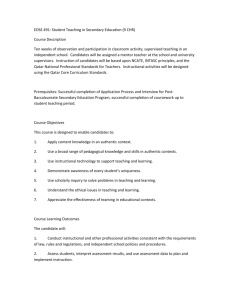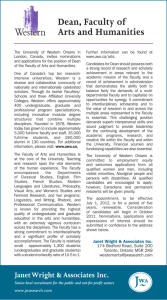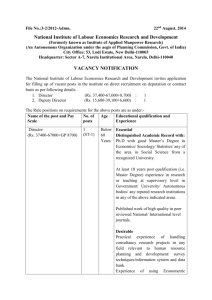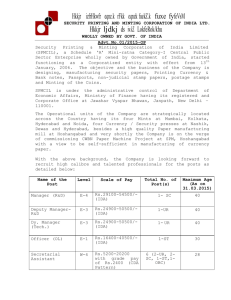Course Overview - SpecialEducationOntario
advertisement
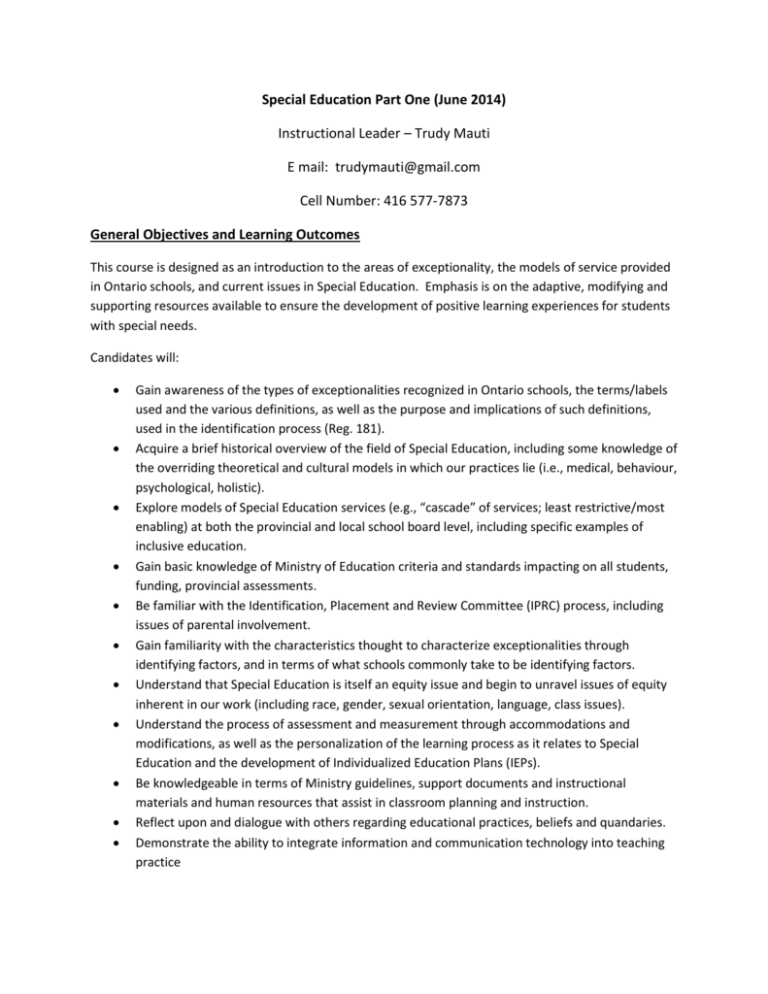
Special Education Part One (June 2014) Instructional Leader – Trudy Mauti E mail: trudymauti@gmail.com Cell Number: 416 577-7873 General Objectives and Learning Outcomes This course is designed as an introduction to the areas of exceptionality, the models of service provided in Ontario schools, and current issues in Special Education. Emphasis is on the adaptive, modifying and supporting resources available to ensure the development of positive learning experiences for students with special needs. Candidates will: Gain awareness of the types of exceptionalities recognized in Ontario schools, the terms/labels used and the various definitions, as well as the purpose and implications of such definitions, used in the identification process (Reg. 181). Acquire a brief historical overview of the field of Special Education, including some knowledge of the overriding theoretical and cultural models in which our practices lie (i.e., medical, behaviour, psychological, holistic). Explore models of Special Education services (e.g., “cascade” of services; least restrictive/most enabling) at both the provincial and local school board level, including specific examples of inclusive education. Gain basic knowledge of Ministry of Education criteria and standards impacting on all students, funding, provincial assessments. Be familiar with the Identification, Placement and Review Committee (IPRC) process, including issues of parental involvement. Gain familiarity with the characteristics thought to characterize exceptionalities through identifying factors, and in terms of what schools commonly take to be identifying factors. Understand that Special Education is itself an equity issue and begin to unravel issues of equity inherent in our work (including race, gender, sexual orientation, language, class issues). Understand the process of assessment and measurement through accommodations and modifications, as well as the personalization of the learning process as it relates to Special Education and the development of Individualized Education Plans (IEPs). Be knowledgeable in terms of Ministry guidelines, support documents and instructional materials and human resources that assist in classroom planning and instruction. Reflect upon and dialogue with others regarding educational practices, beliefs and quandaries. Demonstrate the ability to integrate information and communication technology into teaching practice Evaluation This course is evaluated on a Recommended/Not Recommended basis. No grades will be assigned. Candidates will receive feedback and responses to all submitted work based on the principles of performance based assessment. The criteria will include proficiency in spoken and written English. As in all university level written assignments, academic honesty is expected and required. You are reminded that attendance, participation and completion of assignments support a recommendation for final accreditation to the Ontario College of Teachers for the additional qualification of Special Education Part 1. The Ontario College of Teachers requires that candidates complete 125 hours of instruction before they can be recommended for an additional qualification. Classroom Time - 70 hours (Face to Face Format) On-line Modules (Moodle) - 30 hours Independent Study - 25 hours Attendance In order to be recommended for additional qualification at the completion of each program all candidates are required to adhere to the York University policy regarding attendance and participation as follows: Since the value of the program rests heavily on the collaborative experience, full attendance and effective participation throughout the entire program are expected. Full attendance at every scheduled session of the program is expected; however, exceptional circumstances may arise that may prevent you from attending a particular session. Please ensure that you have contacted the Instructional Leader with regards to any absences. Arriving late and leaving early is considered a form of absence and will be documented. Candidates will be required to make-up work missed during their absence. This work will be evaluated on the same basis as other work assigned. York University Library You will have use of the Scott Library at York University for the duration of the program. A library application form may be obtained on-line. When you go to the Scott Library for the first time you must bring your completed library card application form along with an acceptable form of identification (e.g., valid driver’s license) in order to obtain a library card. Please call 416.736.5170 for hours of operation. If you have any questions regarding Cooperative policies and procedures please contact the Field Development Office at York University: Telephone: 416.736.5000 Fax: 416.736.5023 E-mail: fielddev@edu.yorku.ca


